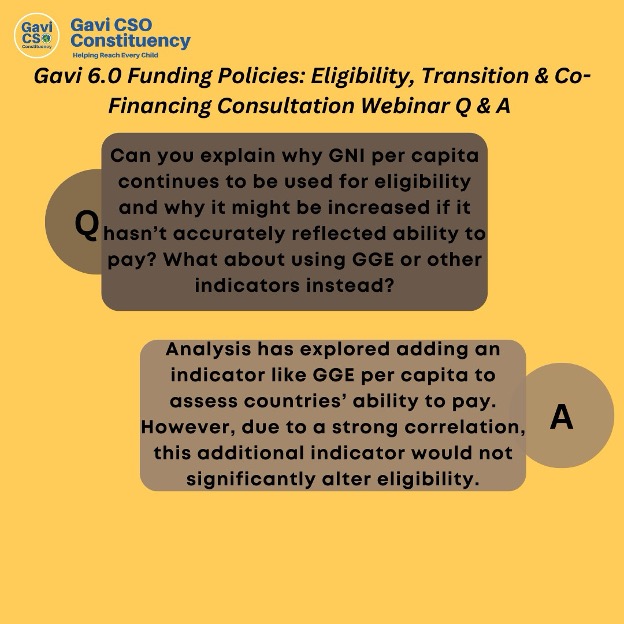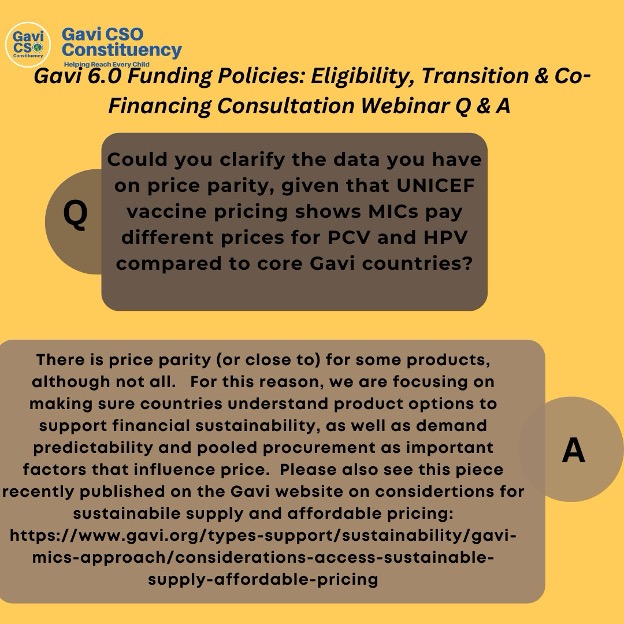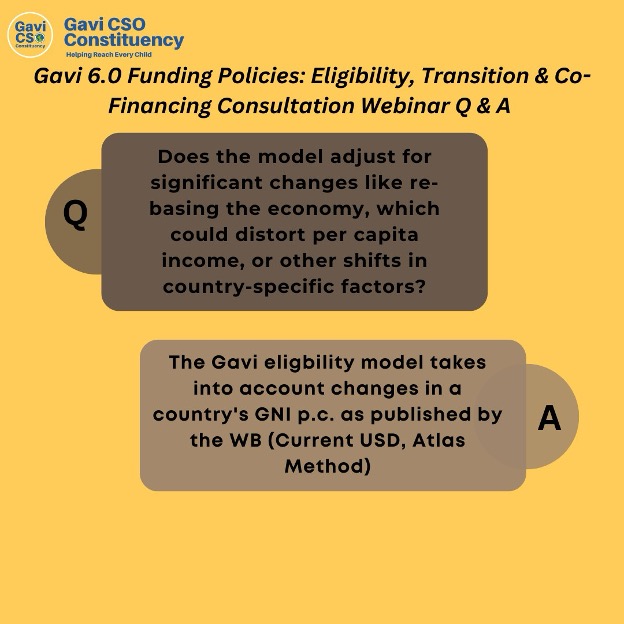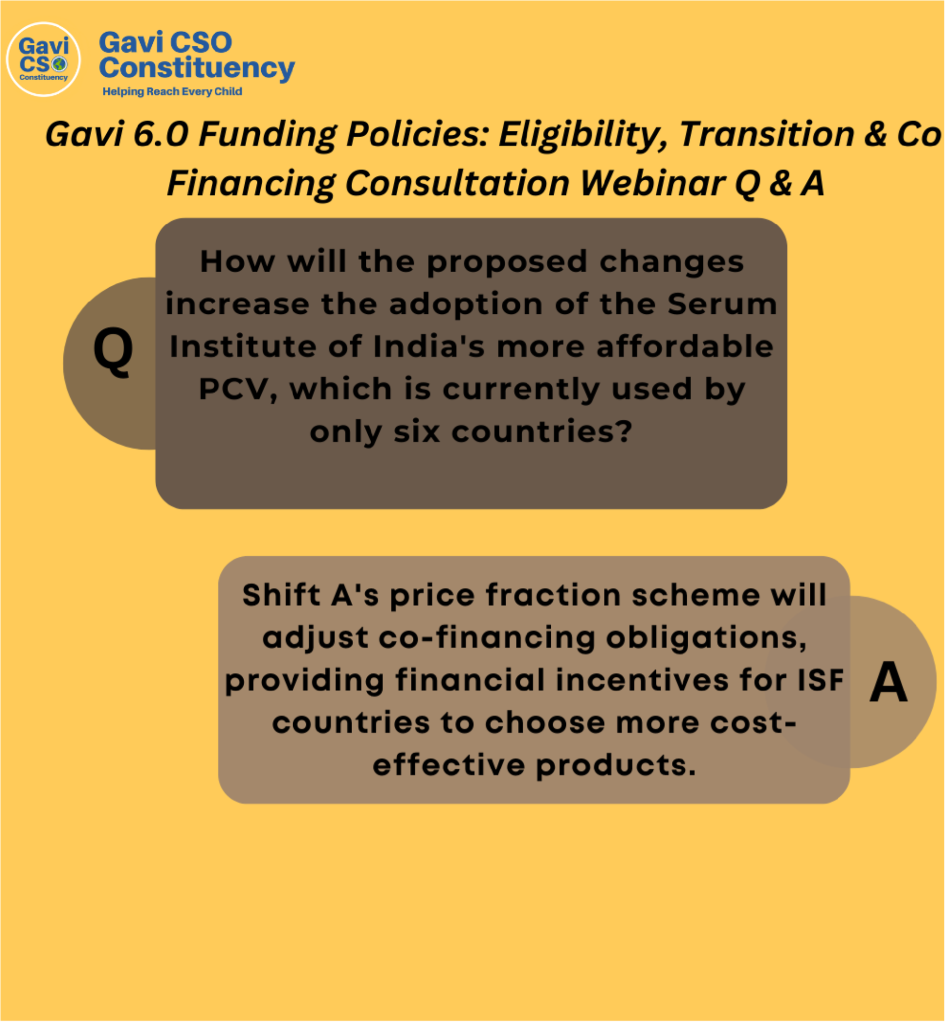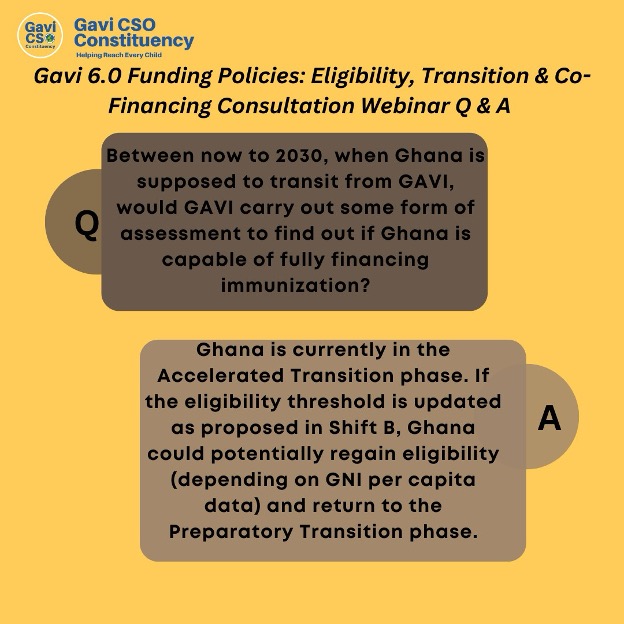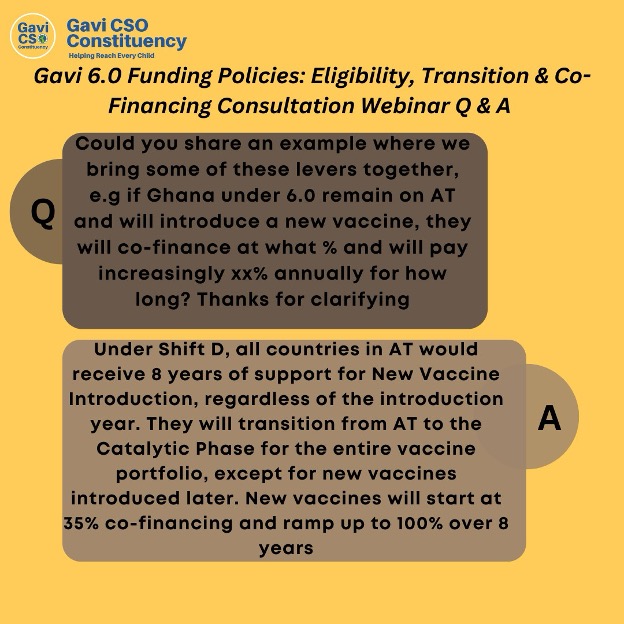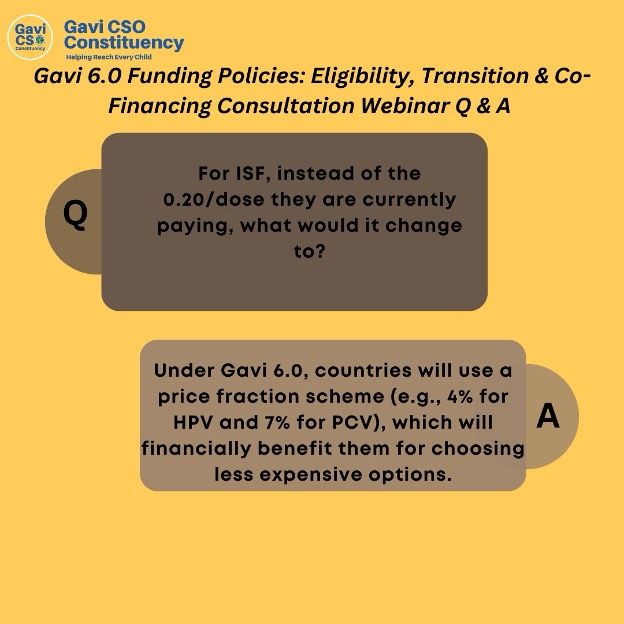A Report on Gavi 6.0 Funding Policies: Eligibility, Transition & Co-Financing Consultation Webinar
Introduction
The Gavi 6.0 Funding Policies represent a significant evolution in the approach to immunisation financing and support for countries transitioning out of Gavi eligibility. This comprehensive report outlines the key objectives, changes, and specific measures introduced under these policies. The primary aim is to ensure sustainable immunisation programs and provide tailored support to countries with unique challenges, such as small island development states and those facing humanitarian crises.
Chapters
Objectives and Key Changes
The Gavi 6.0 Funding Policies are designed to address several critical challenges faced by countries transitioning from Gavi support. The primary objectives include ensuring the sustainability of immunisation programs, providing additional support for small island development states, facilitating smooth transitions from accelerated transition (AT) to catalytic phases, and introducing partial and multi-year waivers for fragile countries experiencing humanitarian crises.
Initial Self-Financing Countries
One of the significant shifts in Gavi 6.0 policies pertains to initial self-financing countries. Gavi aims to introduce price exposure, allowing these countries to benefit from reduced vaccine costs. This change is intended to make vaccine programs more affordable and sustainable in the long term.
Small Island Development States Support
Recognizing the unique challenges faced by small island development states, such as high logistical costs and lack of economies of scale, Gavi has introduced specific measures to support these countries. Key proposals include extending the accelerated transition phase until the end of Gavi 6.0, providing additional vaccine and programmatic support, and implementing a one-time downward adjustment in co-financing to 70%.
For example, the island nation of Vanuatu has benefited from these policies by receiving extended transition support, which has allowed it to maintain its immunisation coverage rates at 90%, despite the logistical challenges of vaccine delivery across its multiple islands. Similarly, the Maldives has seen a reduction in its co-financing obligations, easing the financial burden on its health system and allowing for continued high coverage of routine immunisations.
Updated Eligibility Thresholds
Gavi is updating the eligibility thresholds for countries to enter the accelerated transition phase. This update considers the fiscal context and expanded vaccine portfolios that countries are integrating or planning to introduce. The revised threshold will help accommodate countries’ fiscal realities and support them through the transition phase more effectively.
Accelerated Transition and Co-Financing Policies
The transition from Gavi support involves moving countries from accelerated transition phases to catalytic phases. To facilitate this process, Gavi has introduced several key aspects:
- Providing a minimum number of years of support for new vaccine introductions during the accelerated transition phase.
- Decoupling support to vaccines from support to programs to ensure countries transition successfully from Gavi’s support.
- Using the GNI per capita indicator to assess countries’ ability to pay for vaccine programs, while not necessarily reflecting programmatic performance.
- Introducing partial co-financing obligations to avoid the potential pitfalls of waiver traps.
- Aligning support with Gavi’s broader health system strategy to ensure programmatic success and sustainability.
For instance, Ghana, which is currently in the accelerated transition phase, has received targeted cash support amounting to $10 million to bolster its immunisation infrastructure. This financial assistance has been pivotal in maintaining high immunisation coverage rates and ensuring a smooth transition to full self-financing.
Fragile Countries and Humanitarian Crisis Support
For countries classified as fragile and those facing humanitarian crises, Gavi has introduced tailored support measures. These include multi-year waivers for co-financing obligations, up to three years, and partial co-financing waivers to help countries gradually return to full co-financing obligations.
In the case of Yemen, which has faced ongoing conflict and a severe humanitarian crisis, Gavi has provided a multi-year waiver on co-financing obligations. This has allowed Yemen to focus its limited resources on addressing immediate health needs while still maintaining its immunisation programs. Similarly, South Sudan has benefited from partial co-financing waivers, enabling it to incrementally increase its financial contributions as its situation stabilizes.
Learning Agenda and Testing New Approaches
Gavi 6.0 also introduces the development of a learning agenda and testing some approaches that are not yet considered standard. This includes transitioning by vaccine model, which could be considered in the next strategic period. These adjustments are part of the broader goal of ensuring successful transitions and sustainable immunisation programs.
Recommendations
To enhance the effectiveness of the Gavi 6.0 Funding Policies, several recommendations are proposed:
- Simplify the criteria for targeted cash support during the transition phase to make it more accessible to countries in need.
- Extend the duration of support to better align with Gavi’s current health system strategy, ensuring long-term programmatic success.
- Ensure transparent and consistent application of partial co-financing waivers to build trust and reliability in the system.
- Regularly review and adjust policies based on feedback from countries and stakeholders, maintaining a dynamic and responsive approach to support.
Conclusion
The Gavi 6.0 Funding Policies are a comprehensive and forward-thinking approach to immunisation financing and support. By providing tailored support, extending transition phases, and introducing flexible co-financing options, Gavi aims to ensure sustainable immunisation programs and successful transitions for all eligible countries. These policies reflect Gavi’s commitment to addressing the diverse needs of its partner countries, ensuring that every child has access to life-saving vaccines and a healthier future.
Q&A Session
